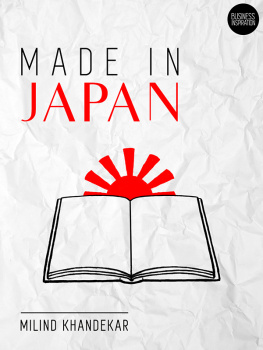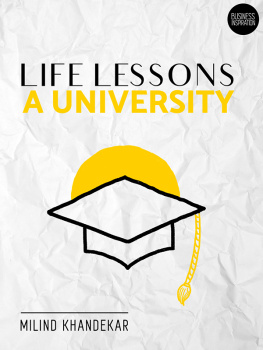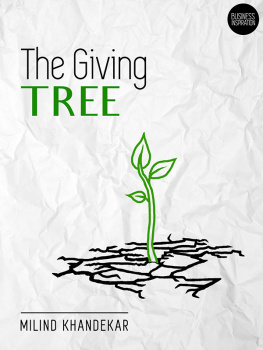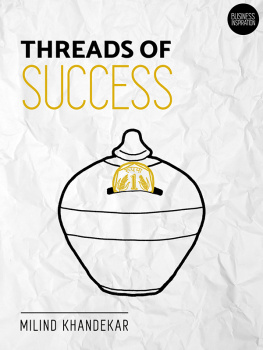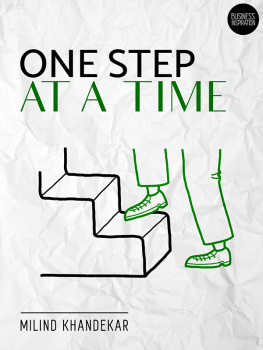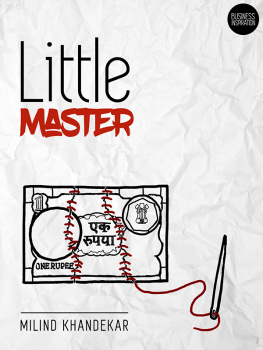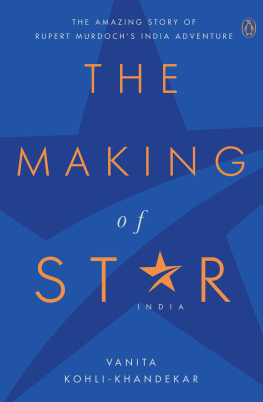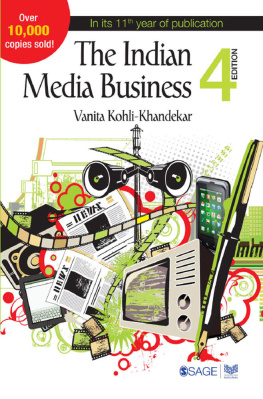Khandekar - MADE IN JAPAN
Here you can read online Khandekar - MADE IN JAPAN full text of the book (entire story) in english for free. Download pdf and epub, get meaning, cover and reviews about this ebook. year: 2017, publisher: Penguin Books Ltd, genre: Business. Description of the work, (preface) as well as reviews are available. Best literature library LitArk.com created for fans of good reading and offers a wide selection of genres:
Romance novel
Science fiction
Adventure
Detective
Science
History
Home and family
Prose
Art
Politics
Computer
Non-fiction
Religion
Business
Children
Humor
Choose a favorite category and find really read worthwhile books. Enjoy immersion in the world of imagination, feel the emotions of the characters or learn something new for yourself, make an fascinating discovery.
MADE IN JAPAN: summary, description and annotation
We offer to read an annotation, description, summary or preface (depends on what the author of the book "MADE IN JAPAN" wrote himself). If you haven't found the necessary information about the book — write in the comments, we will try to find it.
MADE IN JAPAN — read online for free the complete book (whole text) full work
Below is the text of the book, divided by pages. System saving the place of the last page read, allows you to conveniently read the book "MADE IN JAPAN" online for free, without having to search again every time where you left off. Put a bookmark, and you can go to the page where you finished reading at any time.
Font size:
Interval:
Bookmark:





UK | Canada | Ireland | Australia
New Zealand | India | South Africa
Penguin Books is part of the Penguin Random House group of companies whose addresses can be found at global.penguinrandomhouse.com.

Copyright Milind Khandekar 2013
The moral right of the author has been asserted
This digital edition published in 2016.
e-ISBN: 978-9-386-65180-8
This book is sold subject to the condition that it shall not, by way of trade or otherwise, be lent, resold, hired out, or otherwise circulated without the publishers prior consent in any form of binding or cover other than that in which it is published and without a similar condition including this condition being imposed on the subsequent purchaser.


Let the conversation begin...
Follow the Penguin Twitter.com@PenguinIndia
Keep up-to-date with all our stories YouTube.com/PenguinIndia
Like Penguin Books on Facebook.com/PenguinIndia
Find out more about the author and
discover more stories like this at penguinbooksindia.com
PENGUIN
Milind Khandekar has over twenty-two years of experience in the field of journalism. He is currently managing editor at Media Content and Communications Services (I) Pvt. Ltd (MCCS), and looks after the editorial content of ABP News, ABP Ananda and ABP Majha. He has previously worked with the Navbharat Times and Aaj Tak. He is a product of the Times Centre for Media Studies, and received the Rajendra Mathur Award for best trainee (Hindi) in 1991.


GROWING UP, ATUL PASWAN had heard in his village in Siwan, Bihar, that there are three kinds of people who are greatly respected: teachers, doctors and the police. Teachers and doctors are respected for their work, but the police force is respected because of the power it wields. Atul came from a family of teachers. His parents, uncles and aunts were in the profession, and there were ten or twelve teachers in the family altogether. But Atul thought teaching was monotonous and wanted a more glamorous profession.
Throughout his childhood, Atul had dreamt of becoming a doctor, even though he didnt know what that actually entailed. His school did not have a laboratory, and zoology was taught solely from textbooks. It was only when he went to Patna, after class twelve, to take coaching for the medical entrance exam, that he fainted after seeing a frog being dissected for the first time. He understood that he did not have it in him to become a doctor.
Today, Atul is neither a doctor nor an engineer. He is president and CEO of Indo-Sakura Software Private Limited. This company designs software, provides consultancy to Japanese companies who wish to set up a business in India and organizes Japanese language-training programmes. Its annual turnover is estimated to be Rs 15 crore. There are twenty-five engineers working with Atul in Japan, and fifteen in India. At just thirty-six years of age, he is the first Dalit industrialist to own a software company. In the past, this sector had been monopolized by Brahmin engineers. Now, luckily, times are changing, and Dalit engineers have started being employed in software companies as well.
Surprisingly, his knowledge of Japanese was what led him on his path to becoming the owner of a business. It was quite a coincidence how Atul ended up studying Japanese. After fainting at the sight of blood at the medical coaching centre in Patna, he had no idea what to do next. He heard from a friend that Jawaharlal Nehru University (JNU), Delhi, offers courses in foreign languagesone could go abroad after learning one. Atul took the entrance test, cracked it and chose to study Japanese from JNU.
Delhi was an altogether different world compared to Patna. They were taught in English, which Atul was not very familiar with. The medium of instruction in his school as well as the coaching for entrance exams in Patna had been Hindi. And while the medical entrance test had been in English, it had consisted of objective questions, where one had to just circle the right answer. Atul picked up most of his English from interacting with the other students at JNU. Japanese, of course, was taught in class.
When he graduated in 1997, Atul had figured out that working as a translator or interpreter would be viable only for the next eight or ten yearsit would be difficult to survive in this market as one grew older. He then decided to do get an MBA degree to learn the intricacies of business, and was admitted to the University of Pondicherry.
If Delhi was worlds apart from Siwan, Pondicherry was another universe. Atul says that there were only four north Indian students in the entire university. Studying in Pondicherry brought him closer to the world of software. Bangalore was just an overnight bus journey away. The looming presence of software companies like Infosys and Wipro in the city had put Bangalores name on the map and ensured the creation of a ripple effect in all the big countries of the world. Atuls instinct told him to work in this sector. He says it was ultimately the amount of money that could be made in this field that swayed him.
Though it was difficult to enter the software world without a degree in engineering, Atuls knowledge of Japanese and his MBA degree paved the way for him. He got a job at Fujitsu Limited, one of the leading software companies in Japan and the third largest in the world. Atuls job was to select an Indian company through the bidding process, keep an eye on their work and get the work done from the Indian vendor.
While working at Fujitsu, Atul noticed that Indias big software companies like Tata Consultancy Services and Infosys had not been able to grab a foothold in the Japanese market even though they dominated the American and European markets. This was mainly due to the language barrierthe Japanese preferred to conduct business in their own language instead of in English. Before outsourcing their work, Japanese companies liked to ensure that Japanese-speaking persons were part of the projectand there were only a handful of Japanese-speaking engineers in Indian companies. Another hurdle to business was the Japanese hesitation to import goods, part of which stemmed from nationalism. They were willing to sell their goods all over the world, but hesitated to buy from just anyone. After observing the dynamics and peculiarities of this market for four years, Atul was in a good position to launch a company that was customized to cater to the Japanese market.
Font size:
Interval:
Bookmark:
Similar books «MADE IN JAPAN»
Look at similar books to MADE IN JAPAN. We have selected literature similar in name and meaning in the hope of providing readers with more options to find new, interesting, not yet read works.
Discussion, reviews of the book MADE IN JAPAN and just readers' own opinions. Leave your comments, write what you think about the work, its meaning or the main characters. Specify what exactly you liked and what you didn't like, and why you think so.

